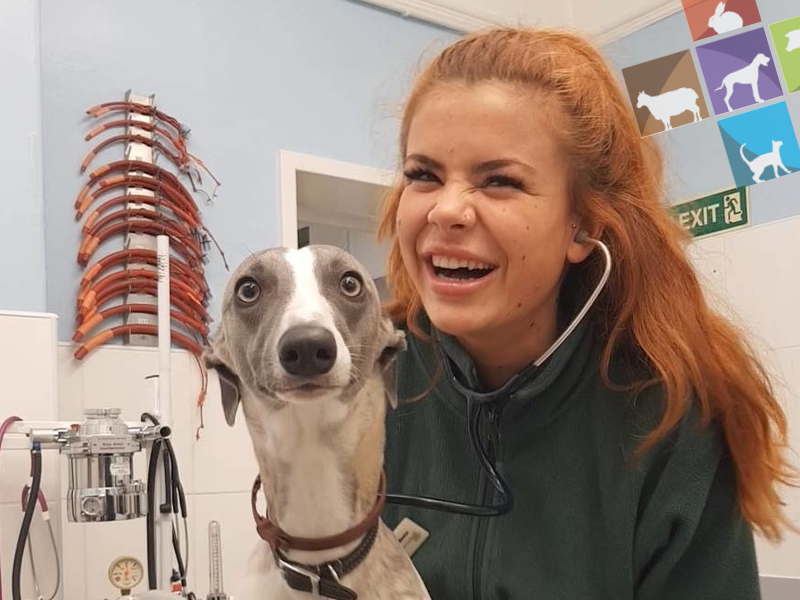Congratulations!
The big news this week is that our student nurse Polly has passed her final written exam! We are all so proud of her and the work she has put in over the last few years. It has been a hard slog for her, but we know it will pay off in the end. Polly now has her practical exams to complete, but we know she will ace these and will soon be a Registered Veterinary Nurse.
Another of our student nurses, Elin, is sitting her practical exams today so we wish her lots of luck (although we know she won’t need it!). Once she has passed these there will be a bit of paperwork to complete and she too will be a Registered Veterinary Nurse! Exciting times ahead for the nursing team at Daleside!
IMHA
This week we had a case of Immune-Mediated Haemolytic Anaemia (IMHA) in our Shotton practice. IMHA is a condition that causes the dog’s immune system to attack and kill its own red blood cells. Even though the body will produce more red blood cells, the immune system will continue to attack them, making the dog very anaemic. A lovely little dog was brought into us as she just hadn’t been herself for a few days. She’d been lethargic and not wanting to move much, as well as a couple of episodes of vomiting. Thankfully though, her owner brought her into see us and we were able to run tests that showed her red blood cell count was extremely low. Her blood results showed that she needed a blood transfusion, which was administered by our out of hours provider, VetsNow.
She is not out of the woods yet, but her red blood cell count is now better than it was before treatment and we are wishing her a speedy recovery. As a practice, we are hoping to set up a blood donor list sometime in the new year to help in cases such as this. We will be looking for clients willing to participate and will share more details once we have everything sorted, so watch this space!
Pyometra
We had a very sad case in this week of a dog with a pyometra, who sadly passed away. A pyometra is a life threatening infection in the uterus as a result of hormonal changes in the reproductive tract during a season. When a dog is in season white blood cells (responsible for fighting infection) do not enter into the uterus. This is so the sperm cells are able to survive if she is mated. If she doesn’t get pregnant for several consecutive seasons the lining of the uterus will become thickened, which can lead to the development of cysts. These cysts are usually the cause of the infection. More often than not, the only way to treat this condition is to spey the dog to remove the uterus, and this is quite a complicated procedure in a dog with a pyometra.
If a dog is speyed when she is young it is quite a simple procedure and will prevent this condition from occurring entirely. Cases like this just highlight how important it is to neuter your pets.


